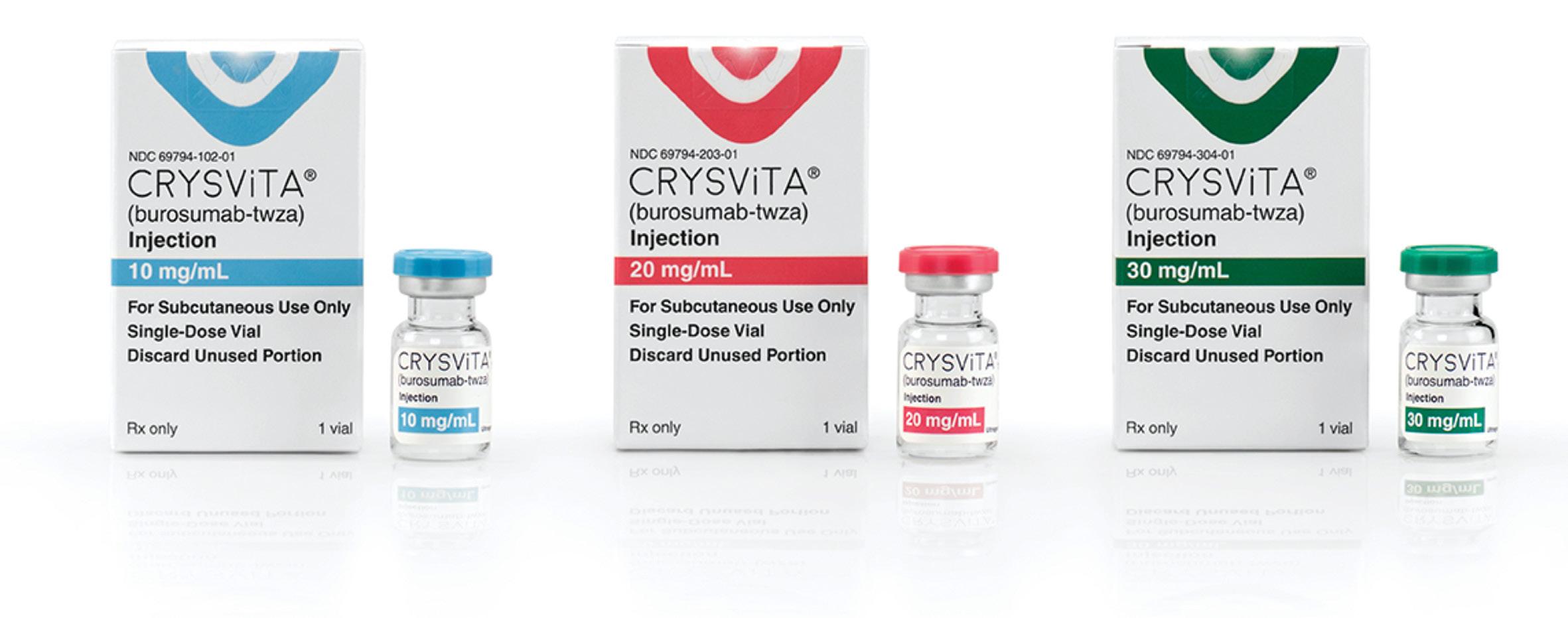
4 minute read
Seeks Innovative Treatments for Patients Who Have Rare and Ultra-Rare Genetic Diseases
ULTRAGENYX PHARMACEUTICAL INC.
Seeks Innovative Treatments for Patients Who Have Rare and Ultra-Rare Genetic Diseases
Advertisement
BY ULTRAGENYX
“There is nothing more powerful than treating patients who have never been treated before. Nothing is more uplifting and compelling than being in the room and treating a patient for the first time. I’ve been trying to recreate that moment over and over again.” - Dr. Emil Kakkis, CEO and President.
Rare diseases affect more people than cancer and AIDS combined. There are over 7,000 rare diseases affecting 30 million Americans. In fact, one in every 10 people is affected by rare diseases, half of whom are children. Of those children, 30% will not live to see their 5th birthday with rare diseases accounting for 35% of deaths in the first year of life. Notwithstanding the prevalence of rare diseases and their devastating effects, only 5% of rare diseases have an FDAapproved drug treatment.
Ultragenyx believes that long-term innovation in healthcare is critical for the many patients with rare diseases who are still waiting for an approved treatment and is dedicated to the goal of providing treatments where none currently exist.
Founded in April 2010 by Dr. Emil Kakkis with headquarters in Novato, California, and offices and laboratories in Brisbane (CA), Cambridge (MA), Waltham (MA), Woburn (MA), Miami (FL) and Basel (Switzerland), the company employs 796 people globally, and aims to address diseases with high unmet medical need and clear biology for treatment, for which there are few or no approved therapies to treat the underlying disease.
Ultragenyx has a diversified pipeline that includes 2 approved therapies (Mepsevii® and Crysvita® − patients in Michigan are being treated with these therapies) and ~20 programs in clinical or pre-clinical development across multiple modalities (small molecule, biologic, gene therapy and mRNA).
Mepsevii® is an enzyme replacement therapy approved in November 2017 for pediatric and adult patients who have mucopolysaccharidosis type VII (MPS VII). MPS VII is an ultra-rare disease, affecting ~200 people in the developed world, that is progressively debilitating and life threatening.

These patients’ bodies do not produce enough of a particular enzyme that breaks down and recycles complex sugars, leading to abnormal sugar storage within cells and tissues. People with MPS VII may experience joint stiffness, short stature, an enlarged spleen and liver, and heart and lung complications.
Crysvita® is a biologic administered via subcutaneous injection approved in April 2018 for pediatric and adult patients who have X-linked hypophosphatemia (XLH). Approximately 48,000 people in the developed world have XLH, an inherited bone disease resulting from excess activity of FGF23. FGF23 blocks phosphate re-absorption by the kidney and suppresses phosphate absorption by the intestine, resulting in abnormally low levels of phosphate and causing weak bones and teeth and affecting bone growth. Children with XLH may experience slowed growth, short stature, skeletal deformities, bowed legs, knock knees, and dental abscesses while adults may experience spontaneous fractures, poor bone mineralization, early degenerative joint disease, chronic pain, dental abscesses, hearing loss, fatigue, muscle stiffness and pain, and impaired mobility.
In addition to these approved therapies, Ultragenyx’s Crysvita® for the treatment of tumor-induced osteomalacia (TIO), and triheptanoin for the treatment of long-chain fatty acid oxidation disorders (LC-FAOD) may receive FDA approval in the coming months. Combined, 10,000 – 18,000 people in the world have TIO and LC-FAOD, including approximately 100 babies born each year in the United States with an LC-FAOD diagnosis confirmed by newborn screening – Michigan currently offers a newborn screening for all six sub-types of LC-FAOD. Ultragenyx is also investigating gene therapies for the potential treatment of rare diseases. The company’s two gene therapy programs currently in clinical development are targeting ornithine transcarbamylase deficiency (OTC deficiency) and glycogen storage disease typa la (GSDla) and could treat the approximately 16,000 people in the developed world who have those conditions. The University of Michigan is one of the clinical trial sites for GSDla.
Finally, Ultragenyx is partnering with GeneTx Biotherapeutics LLC to develop a treatment for Angelman Syndrome – a condition affecting approximately 60,000 people in the developed world and causing developmental delays, balance issues, motor impairment, and debilitating seizures. Patients with Angelman Syndrome require continuous care and are unable to live independently despite having a normal lifespan.
As evident by the small patient populations and severe symptoms of these rare diseases, a diagnosis can feel like a bolt of lightning that abruptly transforms the future and way of life of the patient and their family. Ultragenyx knows the urgency of rare disease patients’ and caregivers’ hope and believes in an obligation to develop the most effective therapies as quickly as possible and to ensure global majority access for patients who can benefit.

ULTRAGENYX.COM









